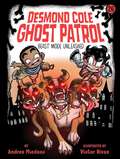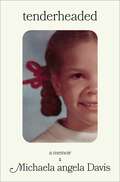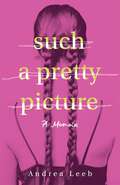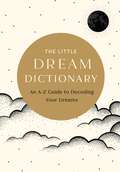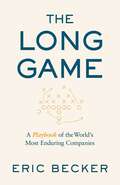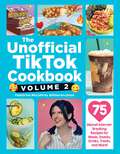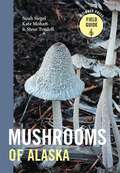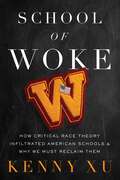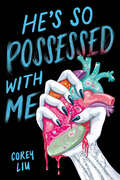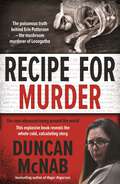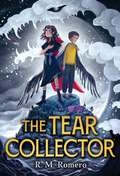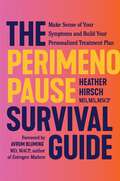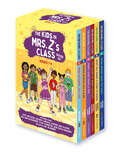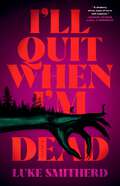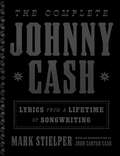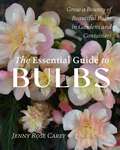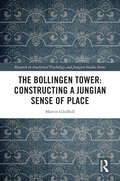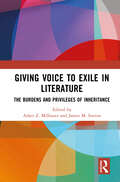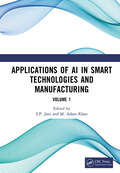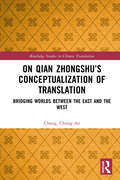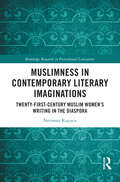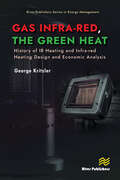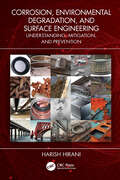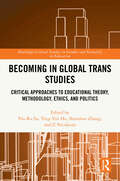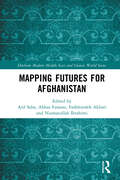- Table View
- List View
Beast Mode Unleashed (Desmond Cole Ghost Patrol)
by Andres MiedosoA simple pet-sitting job turns into a beast of a time in this twenty-sixth installment of the Desmond Cole Ghost Patrol series!Andres and Desmond are pet-sitting a toy poodle for a night. How hard could it be? But when the dog transforms into a monster with three heads, the Ghost Patrol realizes they may have bitten off more than they can chew! With easy-to-read language and illustrations on almost every page, the Desmond Cole Ghost Patrol chapter books are perfect for emerging readers.
Tenderheaded: A Memoir
by Michaela angela DavisAfter working alongside iconic figures like Diana Ross, Prince, and Maya Angelou and as VIBE&’s founding fashion director, Michaela angela Davis provides both a celebration of Black media&’s vibrant history and a critical examination of its challenges and identity politics.On her first day of second grade, a group of older girls surrounded Michaela. The ringleader drafted her little sister, armed her with a pair of scissors, and shouted a command: cut Michaela&’s big blond pigtails off or face her fury. Michaela and her braids survived the attempted &“jump,&” but she never saw the world and hair the same way again. Recognizing how her light skin, light eyes, and light hair facilitated her access to the explosive intersections of hardcore, house, and hip-hop culture, Michaela angela Davis&’s Tenderheaded is the coming-of-age story of a stylist and editor who hustled during the golden age of the downtown NYC scene of the &’80s, established a career through the hip-hop–fueled &’90s, and reckoned with the media industry in the &“post-racial&” Obama years while being in service to Black women every step of the way. With a life and career as complex and textured as her hair, Davis has written more than a memoir. A tribute to Black girls and women everywhere, Tenderheaded is a cultural manifesto that reckons with the role media and American history play in the fascinating and chaotic shaping of a collective identity.
Such a Pretty Picture: A Memoir
by Andrea LeebFor readers of I&’m Glad My Mom Died by Jennette McCurdy and The Glass Castle by Jeanette Walls, a candid and heart-wrenching memoir about child abuse, family secrets, and the healing that begins once the truth is revealed and the past is confronted.Andrea is four and a half the first time her father, David, gives her a bath. Although she is young, she knows there is something strange about the way he is touching her. When her mother, Marlene, walks in to check on them, she howls and crumples to the floor—and when she opens her eyes, she is blind. Marlene&’s hysterical blindness lasts for weeks, but her willful blindness lasts decades. The abuse continues, and Andrea spends a childhood living with a secret she can&’t tell and a shame she is too afraid to name. Despite it, she survives. She builds a life and tells herself she is fine. But at age thirty-three, an unwanted grope on a New York City subway triggers her past. Suddenly unable to remember how to forget, Andrea is forced to confront her past—and finally begin to heal. This brave debut offers honest insight into a survivor&’s journey. Readers will feel Andrea&’s pain, her fear, and her shame—yet they will also feel her hope. And like Andrea, they will come to understand an important truth: though healing is complicated, it is possible to find joy and even grace in the wake of the most profound betrayals.
The Little Dream Dictionary: An A-Z Guide to Decoding Your Dreams
by Tim RaybornDive into a world of new insights and self-discovery as you unlock the secrets of your subconscious with this collection of 1,000+ common dream symbols and their meanings. Unlock the mysteries of your dreams with this comprehensive dream dictionary, featuring over 1,000 of the most common dreams and their interpretations. Whether you dream of being underwater, flying, or taking an exam, this handy guide offers insightful and straightforward explanations that illuminate the deeper meanings behind your dreams. Each concise entry will provide you with greater clarity and understanding of yourself and your subconscious thoughts, desires, and fears. Whether you&’re a dream enthusiast or a newcomer to dream analysis, this book is your essential companion. Decode the secrets of your dreams and unravel your subconscious with the turn of every page. GAIN NEW INSIGHTS: Uncover the layers of your subconscious and learn how your dreams reflect your desires, fears, and aspirations, providing you with valuable insights into your waking life. 1,000+ ENTRIES: Entries cover a wide range of the most common dreams, from falling to flying. EASY TO REFERENCE: Perfect for those new to dream interpretation, with alphabetized entries and simple-to-understand explanations. EYE-CATCHING DESIGN: In addition to being a practical and comprehensive resource for dream analysis, this dictionary is a high-quality, deluxe product with spot illustrations throughout. COMPACT AND DURABLE: Durable materials and a portable 5.75" x 8.25" size make this dictionary ideal for taking on overnight trips and fitting on a nightstand.
The Long Game: A Playbook of the World's Most Enduring Companies
by Eric BeckerIn the next decade, nearly 70 percent of U.S. new businesses will fail . . . Why?Competition. Stock market downturns. Geopolitical crisis. Poor planning. Millions of companies struggle to make it past one year, but how do the rare few manage to endure one hundred years? And is it still even possible to future-proof your business?The answer is yes. This playbook, developed by Eric Becker, will show you how it&’s done.As an investor, board member, CEO and founder, Eric has become a global leader in private equity and wealth management and successfully played key roles in over one hundred companies in his career. He has also guided some of the world&’s most powerful entrepreneurs and ultra-high net worth families.By leveraging his own success and lessons he&’s learned in board rooms of billion-dollar start-ups and iconic legacy brands, Eric has developed the key plays that he believes can fortify a business to thrive.The Long Game highlights a curated collection of companies that have defied the odds and thrived for over a century. Through meticulous research and in-depth interviews with CEOs, historians, and key decision makers, this book delves into the pivotal strategies and decisions that enabled them to adapt and remain competitive on a global stage. Eric&’s playbook passes forward the legacy of those who have figured it out, helping founders shape the future.
The Unofficial TikTok Cookbook, Volume 2: 75 (More!) Internet-Breaking Recipes for Meals, Snacks, Drinks, Treats, and More! (Unofficial Cookbook Gift Series)
by Palestrina McCaffreyDiscover 75 viral TikTok recipes and trending dishes in the second volume of bestselling The Unofficial TikTok Cookbook, perfect for easy home cooking and chefs of all skills!From viral Whipped Lemonade to trending Pasta Chips, explore some of the most popular, post-worthy TikTok recipes that are taking social media by storm. Test out the latest viral sensations and make some delicious dishes inspired by social media including: -Cucumber Salad -Baked Feta Pasta -Dubai Chocolate Bars -Dirty Soda -And much more! Featuring simple, step-by-step instructions, recreate the viral TikTok recipes taking over your FYP, all from the comfort of your home. Whether you&’re planning to post your cooking creations online or simply plan to taste test with friends, this book is a must-have for chefs of all ages.
Mushrooms of Alaska (A Timber Press Field Guide)
by Noah Siegel Steve Trudell Kate MohattIdeal for foragers, hikers, and birders, Timber Press Field Guides are the perfect tools for loving where you live From the leading experts on Northwest mycology comes this comprehensive field guide to the most conspicuous, distinctive, and ecologically important mushrooms found in the Last Frontier. With helpful identification keys and photographs and a clear, color-coded layout, Mushrooms of Alaska is the perfect companion for locals and visitors alike. Describes and illustrates more than 400 species of fungi Over 500 spectacular photographs, with additional keys and diagrams Includes rare species not illustrated in other guides Easy to use for beginners and experts
School of Woke: How Critical Race Theory Infiltrated American Schools and Why We Must Reclaim Them
by Kenny XuFrom one of America&’s most relentless critics of Critical Race Theory comes this far-reaching, on-the-ground investigation of how CRT infiltrated our public schools and transformed them into activism factories—with disastrous results. Awareness of the rise of Critical Race Theory (CRT) in public schools and how it has shaped our education system took the U.S. by storm over the last few years. Parents truly became aware for the first time how deeply entrenched CRT was in the classrooms, and their eyes were opened to the insidious agenda thoroughly embedded in public schools. As a result, CRT and parental rights in education became some of the most explosive issues facing Americans today. Kenny Xu is a perceptive and relentless critic of CRT and our culture&’s war on meritocracy. And now, in School of Woke, Xu exposes how CRT is transforming public schools and having a destructive impact on our children&’s education—and their future. In School of Woke, Xu provides historical context to the rise of Critical Race Theory in education, tracing it back to elite graduate schools in the 1970s and showing how the ideology became institutionalized and credentialed. Xu covers the battles taking place in the most problematic and contested school districts in the nation, including Loudoun and Fairfax County Public Schools in Northern Virginia and Santa Barbara High School in California. He also exposes the lucrative business model behind the diversity consulting industrial complex that is instrumental in the curricular wars, revealing how educators and administrators have been gaslighting the public about the prevalence of this radical ideology in the classrooms, where children as young as five are being segregated in the classroom by race and are being taught that whiteness is inherently evil. A work of colorful reportage, historical analysis, and cultural commentary, School of Woke reveals what it will take to extricate our next generation from the destructive trends in our once-vaunted public school education system.
He's So Possessed with Me
by Corey LiuJennifer&’s Body meets Heartstopper in this terrifying, tender, and bitingly hilarious supernatural horror about a boy who must save his best friend from a demon that wants to steal his heart—literally. Ren says he&’s in love, but Colin knows better. Sure, he can't remember much about how it all began. But he remembers dancing at a club he and Ren were too young to dance in. He remembers the boys who harassed them on their way home. He remembers a ghost emerging from the trees, and a white hand reaching for Ren through a thick fog. What Colin can&’t remember is what happened next. Only two things are clear to him: Ren is different now, and the new guy vying for his heart is not who he claims to be. With the help of two unlikely allies and a cranky old medium, Colin must learn to conquer his self-doubt and save his best friend from a love that could cost him his life. Equal parts campy and bewitching, Corey Liu&’s debut YA novel explores predation, isolation, and what happens when a childhood dream of fairytale romance turns into a deadly nightmare.
Recipe for Murder: The poisonous truth behind Erin Patterson – the mushroom murderer of Leongatha
by Duncan McNabTHE DEFINITIVE ACCOUNT OF ERIN PATTERSON AND THE MUSHROOM MURDER TRIAL THAT ENTHRALLED THE WORLDIt is the case that has fascinated many.On 29 July 2023 in Leongatha, a small town in rural Victoria, family and friends of local woman Erin Patterson sit down for Saturday lunch. On the menu, Beef Wellington.The next day, four of the guests are hospitalised. Doctors suspect death cap mushroom poisoning. Within a week, three of them will be dead.On 2 November that same year, Erin Patterson is arrested and charged with three counts of murder and five of attempted murder. Held in custody at Dame Phyllis Frost women's prison until her trial began in April 2025, the case captured media attention around the world. Did Patterson deliberately poison her estranged husband's parents, aunt and uncle?Was the lunch a recipe for murder? Patterson insisted no. She was innocent of any crime. Not guilty, she declared to the court.A jury of her peers have now decided the answer to those two questions. So how did a respected country woman come to find her relationships and behaviour dissected by police and prosecutors?Bestselling author, investigative journalist and former detective, Duncan McNab has sifted through the evidence, spoken to witnesses and attended the nine-week trial.In this gripping book, McNab expertly explains the sequence of events that left three people dead, a community and family shattered and brought Erin Patterson to stand trial. With forensic detail he reveals why the verdict fell the way it did. GUILTY!
The Tear Collector
by R. M. RomeroSet after the end of the world, this darkly fantastical climate change tale explores hope, memory, and what really makes a monster. Climate change culminated in the Flood, an enormous wave that wiped out entire countries. Malka and her younger brother Ezra survived and now live with Dr. Jonas Hollman on the Island, the only piece of land left on Earth. Scavenging useful things from the shoreline under the watchful eye of the Island&’s sinister leader Mr. Gray, Malka and her family get by. Barely. But an illness called the Sorrow is changing people into monsters when their memories of the Mainland grow too sad…and Ezra is the latest to get sick. Desperate not to lose her brother, Malka throws herself into helping &“Uncle&” Jonas with his research to find a cure. Then her family&’s dismal lives are turned upside down by the mysterious Olivia, who crashes a plane on the beach. More people are out there, she says. The world isn&’t lost forever. To save Ezra and the other Islanders, Malka will have to uncover the secrets of her flooded world—and the lies even the people she loves have told her about the true nature of the Sorrow. R.M. Romero tackles our fear and anxiety surrounding climate change and weaves it through with hope in this beautifully told adventure that will resonate with readers young and old.
The Perimenopause Survival Guide: Make Sense of Your Symptoms and Build Your Personalized Treatment Plan
by Heather HirschDr. Heather Hirsch, renowned founder of the Menopause Clinic at Brigham and Women&’s Hospital and featured expert on Oprah Winfrey&’s The Life You Want series, offers a groundbreaking, expert-led guide to not only navigate—but truly thrive—through perimenopause. Perimenopause, the transitional phase before menopause, can feel like one of the most disorienting and unspoken chapters in a woman&’s life. From hot flashes and brain fog to anxiety, back pain, and sleep disruption, the symptoms are real, but the guidance often isn&’t. Too many women between the ages of 35 and 50 find themselves confused, dismissed, or unsupported by their providers.The Perimenopause Survival Guide is a clear, compassionate, and evidence-based resource from one of the most trusted voices in women&’s hormonal health. Dr. Heather Hirsch draws on her years of clinical experience to help women understand what&’s happening in their bodies, and how to take charge of their care. In this essential guide, you&’ll learn: What&’s really driving your symptoms and how to decode them Proven, FDA-approved treatment options—plus how to evaluate what&’s right for you The importance of managing perimenopause now for long-term health How to advocate for yourself and build a care plan around your individual needs and goals Whether you&’re just starting to notice subtle changes or already deep in the hormonal rollercoaster, The Perimenopause Survival Guide empowers you with clarity, confidence, and the tools to feel like yourself again.
The Kids in Mrs. Z's Class Digital Collection: Books 1-6
by Eliot Schrefer Kekla Magoon Kate Messner William Alexander Karina Yan Glaser Rajani LaRoccaReady? Okay! It's time for school at the brand new Curiosity Academy, and there's a certain third grade classroom that stands out from the rest. It's got a cool teacher named Mrs. Z, who wears high-tops and science earrings, and is full of unique classmates from all over Peppermint Falls, who all have a secret. Emma just wants to makes friends at her new school, but an old friend-turned-enemy might ruin her chance at a fresh start. Rohan opens a pet care company to raise money for a school garden, but it's hard to care for pets when you've never done it before and might be a little afraid of them! Poppy tries out a new candy recipe for her class, but she's distracted by her grandma, who's suddenly forgetting things she used to know by heart. Memo is thrilled to be going to a sci-fi fantasy convention with his friend, but his Spanish-speaking abuela has to take them there and Memo doesn't speak Spanish. In a crowded space with no way to talk to each other, nothing could go wrong, right? Wyatt usually keeps to himself and chats with his best friend, Lizzie, who happens to be a stuffed lizard. But as he's growing older, is it still okay for him to bring Lizzie to school? What if someone sees? And lastly, when Mrs. Z's class is getting ready for a variety show, Ayana, who likes blending into the background, is having enough trouble deciding what she could perform center stage when she realizes her loud, bad-joke-telling, all-eyes-on-me dad is a variety show volunteer! Will she ever figure out her performance when she's feeling this embarrassed by her dad? Join the kids in Mrs. Z's class in these six exciting tales of friendship and family, which can be read in any order you choose! Emma McKenna, Full Out Rohan Murthy Has a Plan Poppy Song Bakes a Way The Legend of Memo Castillo Wyatt Hill's Best Friend Is a Lizard Ayana Ndoum Takes the Stage
I'll Quit When I'm Dead: A Novel
by Luke SmitherdA young woman at an intensive wellness retreat and a struggling musician vow to turn their lives around—or die trying—in this provocative, "unputdownable" horror story (Josh Malerman). Madison has seen better days. Reeling from a bad breakup, self-soothing with junk food, and totally consumed by her lack of direction, she&’s in need of a big reset. When she runs into an old acquaintance at the gym, Madison is shocked by how fit they&’ve suddenly become. The cause? An all-female fitness boot camp led by ex-military guru Ellie Fellowes. The course is characterized by grueling reps and minimal contact with the outside world, and when Madison signs up to experience it herself, something doesn&’t feel right. The other students keep acting strangely; Ellie seems almost superhuman, and her intense motivational methods are becoming bizarre, even dangerous. But Madison is getting results. How can she stop now? Musician Johnny Blake has been struggling with a pain pill addiction after a very public, very bad fall. At the encouragement of loved ones, he retreats to a secluded cottage to detox. But Johnny isn&’t alone. Something is lurking in the shadows of his new home—a creature unnatural and hungry, one that traps Johnny in a frightening bargain. If Johnny doesn&’t stay off his pills and keep his end of the deal, he will be eaten alive. As Madison and Johnny&’s predicaments spiral into the unthinkable, they will have to look within to find the true and terrifying answer to the age-old question: How badly do you want it? Nerve-shredding and compulsively readable, I&’ll Quit When I&’m Dead marks Luke Smitherd as a major voice in horror to watch.
The Complete Johnny Cash: Lyrics from a Lifetime of Songwriting
by Johnny CashThe official, comprehensive archive of Johnny Cash&’s writing, with 526 lyrics spanning his 55 years of genre-defining writing: a &“journey through the mind and soul of one of America&’s greatest storytellers&” (Eric Alper) Johnny Cash remains one of the most prolific and influential songwriters in American history. In a voice like no other, his words and melodies speak to the soul of the nation—capturing the complexities of American life and the wonder of the human condition. This definitive volume, fully authorized by the Cash estate, spans the entire arc of his extraordinary career, from the earliest compositions penned in poverty amid the glow of youthful ambition, through the moments that defined him as an inspiration to generations, to the final songs of devotion written near the end of a life filled with pain, success, hardship, and joy. With unprecedented access to Cash&’s personal writings, this work presents newly-discovered, essential compositions, alongside never-before-seen handwritten pages that offer readers a rare and intimate look into his process and poetic mind. Organized to reflect the eras in which they were crafted, with an introduction by his son, John Carter Cash, and incisive reflections by historian Mark Stielper, these songs trace Cash&’s evolution as an artist and a cultural icon through periods of struggle, transformation, activism, and tests of faith. What emerges is an unprecedented portrait of Johnny Cash—a timeless American artist who never stopped searching for truth in rhythm and rhyme.
The Essential Guide to Bulbs: Grow a Bounty of Beautiful Bulbs in Gardens and Containers
by Jenny Rose CareyEverything you need to know about how to choose, plant, and care for your bulbs—and find joy in the process. An absolute must-read for any gardener who wants to level up their gardening skills, The Essential Guide to Bulbs is a gorgeously photographed, comprehensive, and inviting resource that is destined to become a gardening classic. Bulbs have a universal appeal—they are extremely diverse with many varieties to choose from, and they are great in containers. While many gardeners may be familiar with the early show of spring bulbs like daffodils and tulips, there are many more to choose from that provide three-season color, drama, and spontaneity in the garden. Plus, they're great for a tighter budget. In this book, gardeners will discover: ·How to recognize what bulbs you love and personalize your garden to match your vision ·Planting techniques and design ideas for growing bulbs in any size garden ·Incorporating bulbs for pollinators, and the importance of ecological methods ·Tips for creating a brilliant bulb container garden in every season ·A wide array of bulb varieties with in-depth planting information
The Bollingen Tower: Constructing a Jungian Sense of Place (Research in Analytical Psychology and Jungian Studies)
by Martin GledhillOffering a novel conceptual methodology where Jungian psychology is used to analyse Jung’s own architecture, this book offers an innovative reading of Jung’s Bollingen Tower in order to explore a Jungian sense of place, situating it within a wider examination of the psychic places that influenced his work. Representing the first comprehensive study of Jung’s building activities, the chapters illuminate the wider purpose of architecture as a reflection of self and a means to ‘belong’ in the world. Using , the author’s own fieldwork, interviews with descendants, and detailed analysis of Jung’s autobiography and copious writings drawn from his own imagination and psyche, chapters explore themes such as the relationship between psyche and geometry, the idea of psychic place, and ‘inner’ and ‘outer’ in analytical psychology. In discussing the legacy and the predominance of Bollingen Tower as the defining spatial motif of Jung’s psychological system, the chapters also cover comparisons with Marie-Louise von Franz’s Tower and Christiana Morgan’s Tower. The author’s own background as an award-winning architect, alongside a lifelong study of analytical psychology, makes him uniquely placed to shed light on this as-yet underexplored area of study. The book opens up interdisciplinary dialogues and provides a broader context for understanding the relationship between the environment and the psyche. It will therefore be of interest to scholars and postgraduate students in the fields of Jungian and analytical psychology and architecture.
Giving Voice to Exile in Literature: The Burdens and Privileges of Inheritance
by Edited by Asher Z. Milbauer and James M. SuttonGiving Voice to Exile in Literature: The Burdens and Privileges of Inheritance aims to provide undergraduate, graduate and professional readers with a nuanced understanding of how the unique status of exile, issues of displacement, complexities of cultural identity formation, the state of in-betweenness (liminality), and alienation shape fundamental human experiences. Its contributors, prominent artists, literary critics, social scientists, medical professionals, students of exile, and an acclaimed bookseller, explore the origins and causes of uprootedness and examine its historical, social, cultural, psychological, intercultural, political, and linguistic consequences. Their essays are informed by a constructive awareness of the tensions between a “purist” approach to exile as forceful/violent banishment from one’s native land as a result of intolerance and that of exile as a metaphor for all kinds of alienation, societal estrangements and psychic dislocations. Most of the essays in this volume bear the imprint of an experiential/scholarly/lyrical mode of composition and are further informed by the contributors’ acute awareness of the imbricated nature of their parents’ exilic experiences and their own creative and scholarly endeavors. By acknowledging the burdensome traumatic travails of their ancestors, the contributors find pleasure and privilege in their filial and professional responsibility to bear witness to the resiliency of the human spirit, transcending exile, which Joseph Conrad called an “unnatural state of existence.” In so doing, they testify to their efforts to metamorphose their inherited sense of exile into acts of commemoration, education and creativity.
Applications of AI in Smart Technologies and Manufacturing: Volume 1
by M. Adam Khan S. P. JaniApplications of AI in Smart Technologies and Manufacturing presents a rich repository of groundbreaking research in emerging engineering domains. With contributions from eminent educators, industrialists, scientists and researchers, this book highlights the transformative role of AI and smart technologies in enhancing community welfare and shaping the future of manufacturing and engineering practices.This title comprises a selection of papers that reflect a global exchange of ideas in digital manufacturing, advanced machining processes, bioengineering, tribology, smart materials, IoT applications, energy storage, smart cities, robotics, and AI applications in healthcare. With special emphasis on optimization algorithms, virtual and augmented reality in automation, and smart energy technologies, this volume delves into ways in which rapid technological advancements are breaking traditional barriers in education, research, and industrial applications.This is a resourceful guide for researchers, academicians, engineers, industrial practitioners, and graduate students in the domains of mechanical engineering, smart technologies, artificial intelligence, and automation. It is also highly relevant to decision-makers and R&D professionals focused on applying AI and smart solutions to achieve sustainable innovation in engineering and technology.
On Qian Zhongshu’s Conceptualization of Translation: Bridging Worlds between the East and the West (Routledge Studies in Chinese Translation)
by Chang, Chung-AnThis book brings new perspectives and insights to the discipline of translation studies at a time when Western theories dominate its main discourse. By highlighting the significant contribution of Chinese scholar Qian Zhongshu, which encompasses a theoretical probing of the process and product of translation in both China and the West, the author demonstrates how Qian’s reconceptualization of the concept of translation expands the discourse to include and integrate concepts from the history of translation in China. The concept of “huajing,” which is one of these cultural perspectives developed by Qian, transcends the conventional view of translation as a linguistic transfer, envisioning it, instead, as a dynamic realm where encounters with meaning between the textual worlds of China and the West can take place.Through a meticulous analysis of Qian’s profound, though stylistically fragmentary, commentaries, the author reveals how his comparative vision creates connections by breaking down linguistic and cultural barriers, challenging notions of untranslatability that often hinder cross-cultural exchange, and anticipating an inclusive and globalized understanding of translation so urgently needed today.
Muslimness in Contemporary Literary Imaginations: Twenty-first Century Muslim Women’s Writing in the Diaspora (Routledge Research in Postcolonial Literatures)
by Neriman KuyucuFocusing on imagination and self-representation as a key sociocultural force, this book examines the diverse ways Muslim writers articulate complex and multifaceted conceptualizations of Muslimness at the critical conjuncture of culture, faith, gender, sexuality and diasporic experience. It highlights how contemporary fiction offers valuable insights into discussions on Muslims.This book situates Muslim writing in relation to “Muslimness” as an inherently contradictory field of meaning and the Muslim diaspora, which is re-conceptualized as “Muslim diaspora space.” Muslim diaspora space can be used as an analytical framework that can highlight an emerging literary site that Muslim writers create within the current politics of representation. The texts selected for close analysis in this book demonstrate that diasporic experience is not limited to displacement and its challenges; the process of diasporization also signifies the creative potential arising from navigating the tensions between mobility and rootedness, sameness and difference and loss and renewal.
Gas Infra-red, the Green Heat: History of IR heating and Infra-red Heating Design and Economic Analysis (River Publishers Series in Energy Management)
by George KritzlerThis book is a self-study guide for HVAC energy and non-HVAC energy engineers and plant managers who either lack formal training in the subjects of finance, accounting, and gas IR heating engineering economics, or simply need a means to refresh their knowledge in these subjects. Many energy and non-energy engineers and technical managers feel inadequately equipped to comprehend and apply certain important finance and accounting principles. Understanding of finance and accounting principles is important in interfacing and conducting business with accountants, financial analysts, and members of upper management. This book is designed to familiarize energy engineers and other engineering professionals – in a relatively simple and easy to understand fashion – with decision making skills founded on financial calculations and case study based quantitative analysis.
Corrosion, Environmental Degradation, and Surface Engineering: Understanding, Mitigation, and Prevention
by Harish HiraniCorrosion, Environmental Degradation, and Surface Engineering: Understanding, Mitigation, and Prevention offers an insightful exploration into the causes, mechanisms, and mitigation strategies of material degradation. This comprehensive work unravels the complexities of corrosion, wear, and fatigue, while showcasing cutting-edge techniques like surface engineering and predictive analytics. Packed with real-world case studies and innovative solutions, the book bridges the gap between theoretical concepts and practical applications.This book: Explores surface degradation mechanisms and commercial perspectives on surface degradation. Discusses dimensionless parameters in wear phenomena, fracture surface degradation, and the influence of heat and radiation on surface degradation. Covers environmental assisted surface deterioration, and factors affecting the atmospheric corrosion. Highlights the importance of digitization and data-driven approaches in engineering. Assesses the economic losses caused by corrosion degradation, and quantifies economic losses attributed to corrosion degradation. Ideal for students, researchers, and industry professionals, the book provides the tools and knowledge necessary to combat surface degradation and promote sustainability across critical sectors.
Becoming in Global Trans Studies: Critical Approaches to Educational Theory, Methodology, Ethics, and Politics (Routledge Critical Studies in Gender and Sexuality in Education)
by Shanshan Zhang Z Nicolazzo Pin-Ru Su Ting-Yen HoThis ground-breaking book explores the increased visibility of trans people in various academic fields of study including education. It asks who this visibility benefits, and how. With much of the Trans Studies literature in education yet to seriously consider trans as a global phenomenon, or anything beyond an embodied reality, the authors present new possibilities for trans as a global concept, interrogating the Western, trans-normative discourses in education scholarship. In doing so, they introduce a new, transnational lens for the discussion of trans and gender issues in higher education, explore the elucidation of a "new" Trans Studies in education from various perspectives, and demonstrate how trans extends beyond an embodied or material construct.A bold reconceptualization of trans in educational contexts, this book argues that the "new" trans studies can—and must—alter how we think, know, view, feel, and describe the phenomenon of gender. It will appeal to scholars, faculty, graduate students, early career scholars and critical educators with interests in gender and sexuality in education, gender-related scholarship, Trans Studies and international education.
Mapping Futures for Afghanistan (Durham Modern Middle East and Islamic World Series)
by Farkhondeh Akbari Abbas Farasoo Arif SabaMapping Futures for Afghanistan offers a critical and forward-looking exploration of Afghanistan’s most pressing challenges and future possibilities. It examines the current crises posed by the Taliban’s return to power and the collapse of the Republic in August 2021 and maps a range of challenges and solutions that will shape the country’s long-term future.As the first volume of its kind to be entirely produced by scholars from Afghanistan, it critically engages with the dominant narratives and re-imagines the country’s path toward a just, pluralistic and democratic future. Featuring original contributions from leading experts, the volume critically examines Afghanistan’s political, economic, human rights, and geopolitical challenges - while exploring potential solutions. It foregrounds local knowledge and perspectives that are often excluded from mainstream policy and academic discourses. This timely collection will be of interest to a wide range of audiences, including policymakers, practitioners, scholars and students with an interest in Afghanistan and the broader processes and challenges of inclusive peacebuilding and conflict resolution in war-torn societies.
